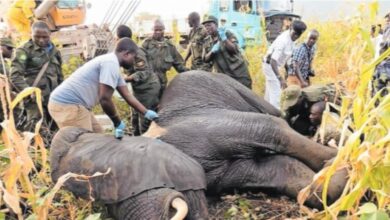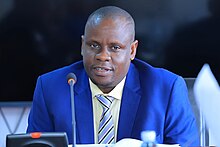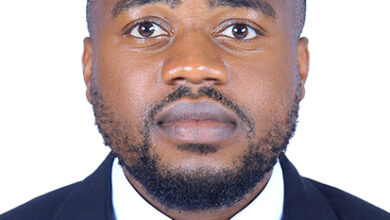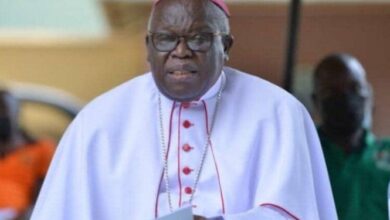Buliisa has oil, decolonize conservation and give back Bagungu part of their land
Logically, the wild animals, which gave the white man a sense of entitlement and an insatiable appetite to grab Bugungu land, multiplied during that period when the land was vacant.
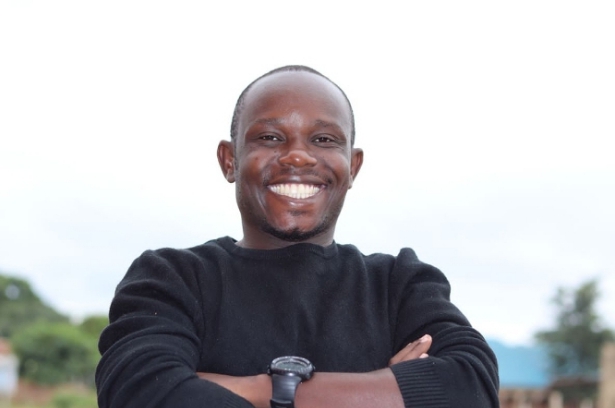
Op-Ed: In Bugungu, the place you call Buliisa district, when you go to Bukidwa, the area located in the north along the road stretch going to the Tilenga’s oil and gas Central Processing Facility from Wanseko town, you will find one of the 56 clans of the Bagungu. The ‘Bakidwa’ clan.
They are keepers of Mwijja (Albert River Nile) in the territories of Bugungu. This clan is now short of men. They lost an undocumented number of sons and fathers when they went fishing on the waters of the Nile in Murchison Falls National Park.
Many have been shot dead by conservation rangers, while others jump off the boats and dive into the depths of the Nile to escape torture from hostile rangers. The unlucky ones fall into the jaws of crocodiles and are eaten alive.
The Bagungu are the indigenous people of Buliisa district who were condemned, many decades ago, by the colonialists to live as conservation refugees on their native land.
In 1952, when the Uganda Legislative Council (LEGCO) unanimously passed a resolution to grab the entire land of Bugungu and turn it into a national park, they lied, saying that the area was empty of human beings and full of important wild animals.
Native historians talk of it as the greatest conspiracy ever orchestrated to exterminate the Bagungu. It would have been a conservation genocide. Surprisingly, the LEGCO had representatives from the western province, including the district of Hoima, where Bugungu belonged. One wonders why the representatives from the western province were silent when the Bagungu were being dehumanized and decitizinized.
It took efforts from the brave youths of Bugungu who were studying in foreign lands under their umbrella, the Bagungu Outside Students Association (BOSA), to write a letter with very good vocabularies and straight to the point after one of their own who worked in the provincial community development office tipped them about the danger.
Like any other master obsessed with pleasants, especially from his subjects, Governor Andrew Cohen had been shocked and amazed when the people from the wilderness wrote his vernacular, fantastically, perfectly better than some of his secretaries and clerks. The letter prompted Sir Andrew Cohen to visit Bugungu.
He was sailed by the great SS Robert Coryndon and docked at the Katala landing site in present-day Buliisa Town Council before he was taken to Kisansya Primary School, where he met a mammoth crowd. In his words, Cohen described the Bagungu as happy people who eat fish. It was here when he asked the Bagungu if they could coexist with wild animals and be spared to live on their ancestral land.
Arguably, the notion that the land of Bugungu was vacant in 1952 could have been drawn from the historical injustice of 1904, when the colonialists announced the outbreak of sleeping sickness in Bugungu.
The Bagungu were forcedly evacuated from their ancestral land and put in an open-air prison disguised as a concentration camp at a place called Kitana in Hoima district for more than 15 years. Oral literature agrees that the Bagungu of Uganda were among the first African indigenous tribes to be herded into colonial concentration camps.
Logically, the wild animals, which gave the white man a sense of entitlement and an insatiable appetite to grab Bugungu land, multiplied during that period when the land was vacant.
The courageous Bagungu who resisted forced evacuation crossed the River Nile and Lake Albert and got assimilated into West Nile and the Democratic Republic of the Congo, respectively. A generation was lost.
Such historical injustices are accountable for the Bagungu’s slow numbers in terms of population. Estimated to be around 116,000 people, according to the 2017 Uganda National Household Survey. The grabbing of their land to create a colonial conservation area took away a large part of their social, spiritual, and cultural life. Traditionally, they were fishermen, hunters, and gatherers who also conserved wild life through their totems, plants, and animals.
They had existed with the wild animals before the colonialists and before their land was grabbed and called a game park. As a result of the 1952 land grab, the Bagungu were left to live in a strip.
Surrounded by the River Nile, Lake Albert, Murchison Falls National Park, and Budongo Forest Reserve. Unfortunately, the strip called Buliisa district is now, more than ever, endangered by the Tilenga oil and gas project development.
The $10 billion Tilenga oil and gas project operated by TotalEnergies Uganda (TEPU) has exacerbated the pressure on the indigenous land. It has destroyed the native environment and terribly disrupted the Bagungu’s communal way of life.
With the announcement by the government of Uganda in February this year that it had given the Uganda Oil Company (UNOC) the license to start oil exploration in the Kasurubani (it should be written as Kasurubbanu) block, which includes again parts of the remaining Buliisa strip,.
Even the blind man can see that the existence of the Bagungu is threatened by national interests. The Bagungu are on the verge of extinction by all means. Sacrificed on the altar of development. Landlessness is the worst form of poverty.
Indigenous people have a special attachment to their land. The trees and the grass that TotalEnergies Uganda (TEPU) and the government of Uganda destroyed with impunity and termed ‘wild’ during the compulsory land acquisition gave life to the Bagungu. They are nowhere to be found, and with it, the Bagungu have lost treasures and life itself.
Lastly, degazetting colonial conservation areas is not a hard thing to do for any government that cares about human existence. Kanyaryeru sub-county in Kiruhura district of western Uganda was curved off from Lake Mburo National Park. The Bagungu are indigenous Ugandans too, and above all, human beings, who deserve the right to live on their ancestral land and multiply on it.
The author is Nelson Byaruhanga, an indigenous journalist, writer, and filmmaker.
Disclaimer: As UG Reports Media LTD, we welcome any opinion from anyone if it’s constructive for the development of Uganda. All the expressions and opinions in this write-up are not those of UG Reports Media Ltd. but of the author of the article.
Would you like to share your opinion with us? Please send it to this email: theugreports@gmail.com.



